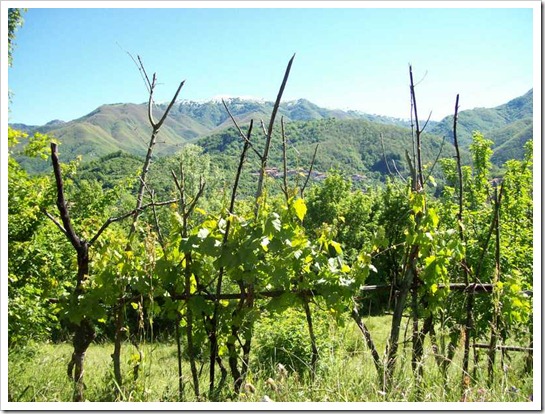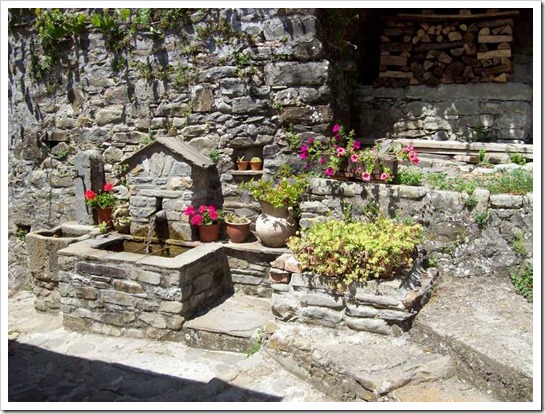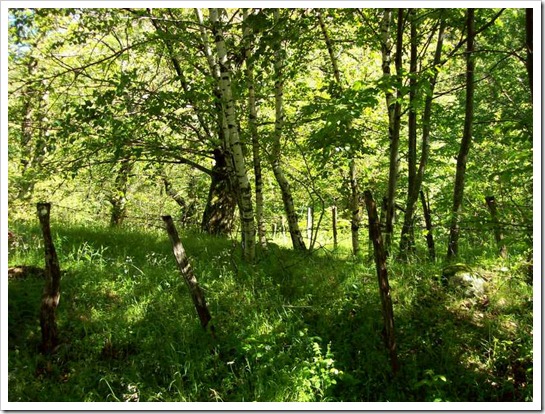Duelling Poets Posted by Serena on Jun 2, 2014 in Uncategorized
Introduction and photos by Geoff
For some reason June seems like the kind of month that needs a poem … or maybe even two! These beautiful days of early summer, full of nature’s renewed activity and the return of colours and scents that we’ve been deprived of for months, seem to inspire creativity. We feel the fresh sap rising through our veins, we are ready for new horizons.

I asked Serena if she could think of an appropriate poem to welcome in the new month and, after having given it a bit of thought, she came up with the following piece by Giacomo di Michele, known as Folgòre da San Gimignano. So, time to hand over to Serena:
Folgòre da San Gimignano (1280-1332), was a knight and courtier who wrote in the Tuscan language just before the time of Dante. His set of sonnets known as La Corona dei Mesi (The Crown of the Months) describes the particular beauties of each month of the year. Here is his sonnet for the month of June:
Di Giugno di Folgòre da San Gimignano
Di giugno dovvi una montagnetta
coverta di bellissimi arboscelli,
con trenta ville e dodici castelli
che sieno intorno ad una cittadetta,
ch’abbia nel mezzo una fontanetta;
e faccia mille rami e fiumicelli,
ferendo per giardini e praticelli
e rinfrescando la minuta erbetta.
Aranci e cedri, dattili e lumìe
e tutte l’altre frutte savorose
impergolate sieno per le vie;
e le genti vi sien tutte amorose,
e faccianvisi tante cortesie,
ch’a tutto ‘l mondo sieno grazïose.
Contemporary Italian paraphrase:
In giugno vi do una collina
coperta di bellissimi arboscelli,
con trenta ville e dodici castelli
posti intorno ad una piccola città,
la quale abbia al centro una fontanella;
che si divida in mille rami e piccoli fiumi,
che scorrono per giardini e prati,
e rinfrescano la piccola erba delicata.
Aranci e cedri, datteri e lumìe
e tutte le altre frutte saporite
pendano da un pergolato lungo le vie;
e le persone lì siano tutte gentili,
e si facciano così tante cortesie,
da essere gradite a tutto il mondo.
English translation:
In June I give you a hill
covered in beautiful young trees,
with thirty villas and twelve castles
surrounding a small town,
having in its centre a small fountain;
that divides into a thousand branches and small rivers,
which flow through gardens and meadows,
freshening the tender young grass.
Oranges and citrons, dates and sweet lemons,
and all the other flavourful fruits
hang from a pergola along the streets;
and the people there are all kind,
and do each other such courtesies,
that they are liked by the whole world.
 |
| The village fountain in front of our house |
Now, those of you who follow our blog will know that we enjoy a bit of satire. Well one of the great things about this poem is that it has its very own comical counterpart. Written by a 13th century jester and storyteller from Arezzo called Cenne da la Chitarra (named after the instrument which he used to accompany his compositions), ‘Risposta per Contrari’(Contrary Reply) is a satirical counterpart to Folgòre da San Gimignano‘s Corona dei Mesi:
Di Giugno di Cenne da la Chitarra
Di giugno siate in tal[e] campagnetta,
che ve sien[o] corbi ed argironcelli;
le chiane intorno senza caravelli:
entro nel mezzo v’abbia una isoletta,
de la qual esca sì forte venetta,
che mille parte faccia e ramicelli
d’aqua di solfo, e cotai gorgoncelli,
sì ch’ella adacqui ben tal contradetta.
Sorbi e pruni acerbi siano lìe,
nespole crude e cornie savorose;
le rughe sian fangose e stret[t]e vie;
le genti vi sian nere e gavinose,
e faccianvisi tante villanie,
che a Dio ed al mondo sïano noiose.
Contemporary Italian paraphrase:
In giugno siate in una tale piccola campagna,
in cui vi siano corvi e picolli aironi;
intorno vi siano paludi senza barchette:
al centro vi sia una piccola isola,
dalla quale una piccola sorgente esca con tale forza,
che si divida in mille parti e torrentelli
di acqua solforosa, e formi tali acquitrini,
cosicché essa allaghi bene tale piccola contrada.
Lì ci siano sorbe e prugne acerbe,
nespole indigeste e cornioli saporiti,
le strade siano fangose e strette;
le persone lì siano scure di pelle e scrofolose,
e si facciano così tante scortesie,
da essere sgradite a Dio ed al mondo.
English translation:
In June may you be in such a countryside,
in which are crows and small herons;
surrounded by swamps without boats:
having in the centre a small island,
from which a small spring gushes out with such a strength,
that it divides into a thousand branches and small rivers
of sulphurous water, and forms such marshes
that they completely flood that small district.
In that place may there be unripe rowan berries and plums,
indigestible meddlers and tasty cornelian cherries,
may the streets be muddy and narrow;
and may the people there be dark and scrofulous,
and do each other such discourtesies,
that they are disliked by God and the world.
Now, which of the two poems did you prefer? ![]()

Build vocabulary, practice pronunciation, and more with Transparent Language Online. Available anytime, anywhere, on any device.





Leave a comment: